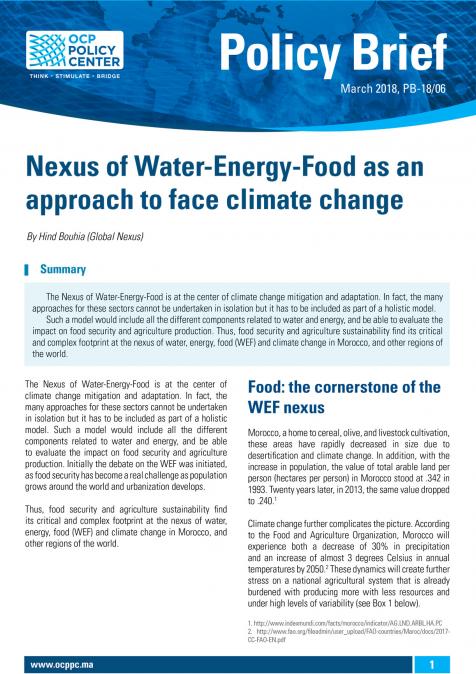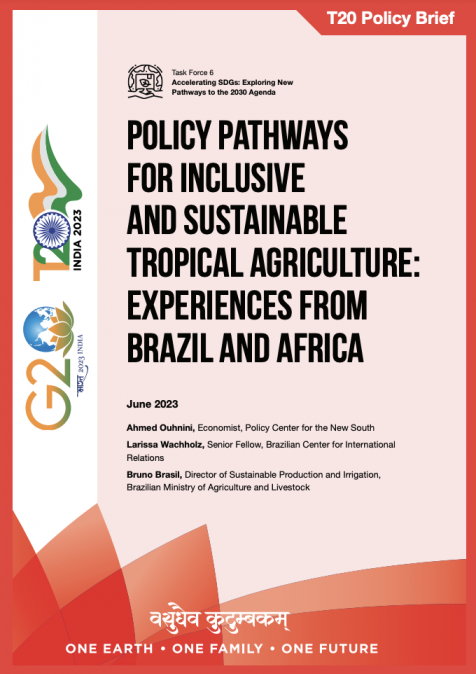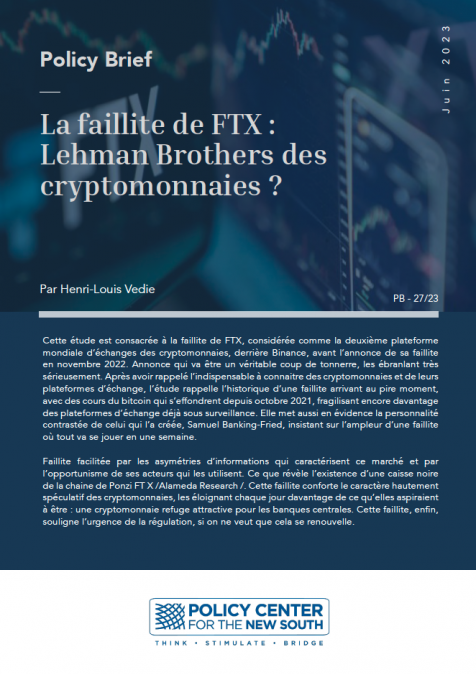Publications /
Policy Brief
Policy Brief
Nexus of Water-Energy-Food as an approach to face climate change
March 14, 2018
The Nexus of Water-Energy-Food is at the center of climate change mitigation and adaptation. In fact, the many approaches for these sectors cannot be undertaken in isolation but it has to be included as part of a holistic model. Such a model would include all the different components related to water and energy, and be able to evaluate the impact on food security and agriculture production. Thus, food security and agriculture sustainability find its critical and complex footprint at the nexus of water, energy, food (WEF) and climate change in Morocco, and other regions of the world.









